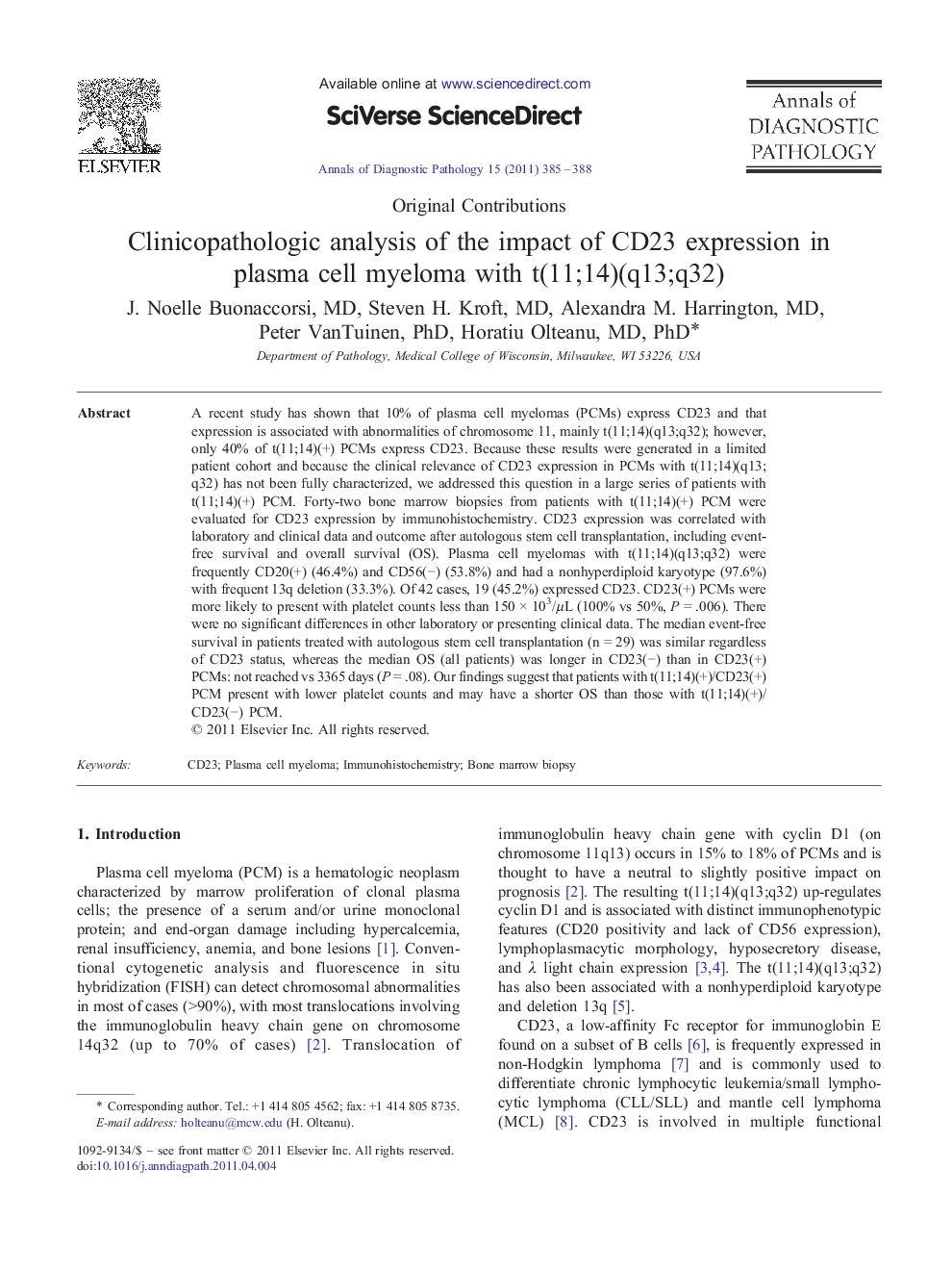| Article ID | Journal | Published Year | Pages | File Type |
|---|---|---|---|---|
| 4130402 | Annals of Diagnostic Pathology | 2011 | 4 Pages |
A recent study has shown that 10% of plasma cell myelomas (PCMs) express CD23 and that expression is associated with abnormalities of chromosome 11, mainly t(11;14)(q13;q32); however, only 40% of t(11;14)(+) PCMs express CD23. Because these results were generated in a limited patient cohort and because the clinical relevance of CD23 expression in PCMs with t(11;14)(q13;q32) has not been fully characterized, we addressed this question in a large series of patients with t(11;14)(+) PCM. Forty-two bone marrow biopsies from patients with t(11;14)(+) PCM were evaluated for CD23 expression by immunohistochemistry. CD23 expression was correlated with laboratory and clinical data and outcome after autologous stem cell transplantation, including event-free survival and overall survival (OS). Plasma cell myelomas with t(11;14)(q13;q32) were frequently CD20(+) (46.4%) and CD56(−) (53.8%) and had a nonhyperdiploid karyotype (97.6%) with frequent 13q deletion (33.3%). Of 42 cases, 19 (45.2%) expressed CD23. CD23(+) PCMs were more likely to present with platelet counts less than 150 × 103/μL (100% vs 50%, P = .006). There were no significant differences in other laboratory or presenting clinical data. The median event-free survival in patients treated with autologous stem cell transplantation (n = 29) was similar regardless of CD23 status, whereas the median OS (all patients) was longer in CD23(−) than in CD23(+) PCMs: not reached vs 3365 days (P = .08). Our findings suggest that patients with t(11;14)(+)/CD23(+) PCM present with lower platelet counts and may have a shorter OS than those with t(11;14)(+)/CD23(−) PCM.
